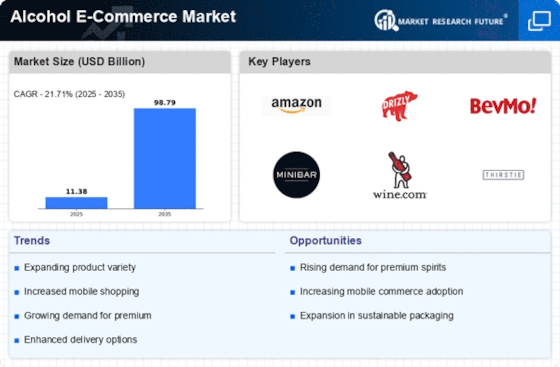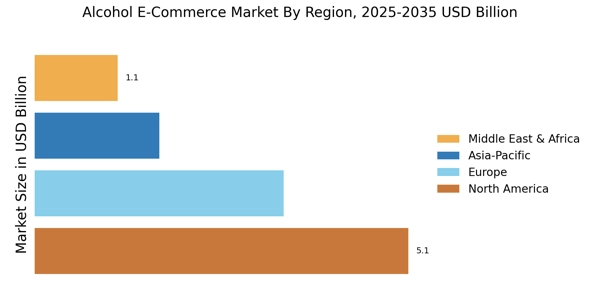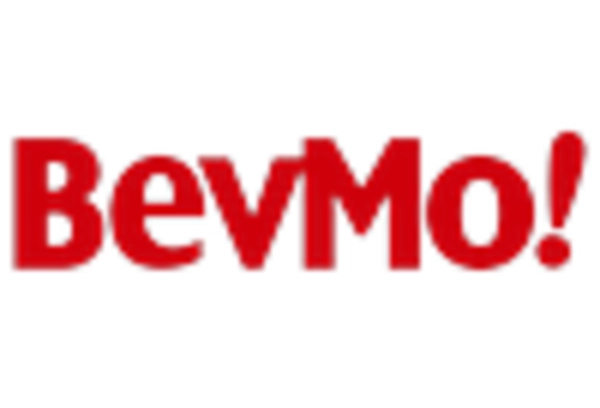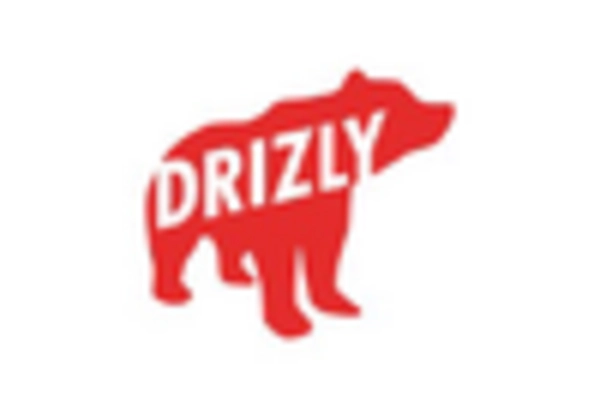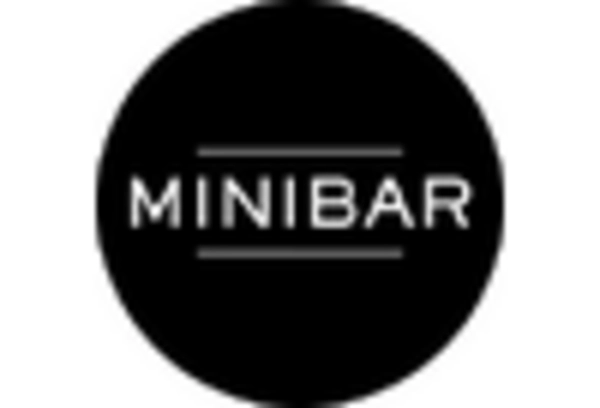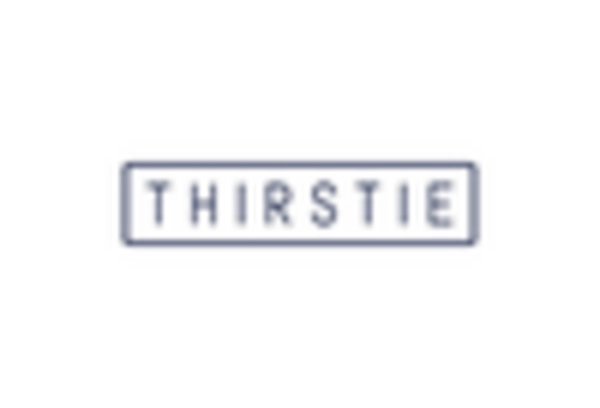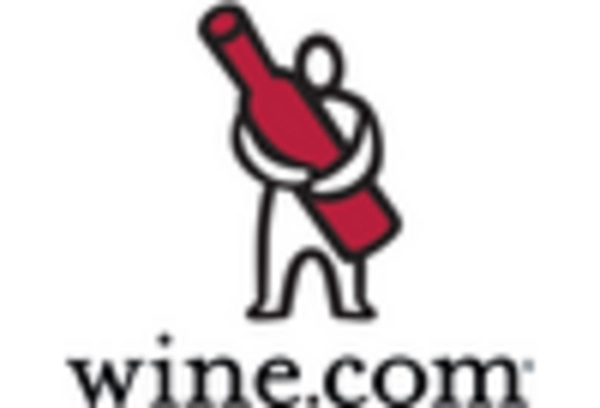Expansion of Delivery Services
The Alcohol E-Commerce Market is witnessing an expansion of delivery services, which plays a crucial role in its growth. Companies are increasingly partnering with logistics providers to ensure timely and efficient delivery of alcoholic beverages. This trend is particularly evident in urban areas, where consumers expect rapid delivery options. In 2025, the market is projected to see a rise in same-day delivery services, catering to the immediate needs of consumers. This expansion not only enhances customer satisfaction but also encourages repeat purchases, thereby solidifying the position of e-commerce in the alcohol sector. As delivery services evolve, the Alcohol E-Commerce Market is likely to benefit from increased consumer loyalty and higher sales volumes.
Regulatory Changes Favoring Online Sales
Regulatory changes are increasingly favoring the Alcohol E-Commerce Market, creating a more conducive environment for online sales. Many regions are revising their laws to allow for direct-to-consumer shipping of alcoholic beverages, which was previously restricted. This shift is expected to open new avenues for e-commerce businesses, enabling them to reach a broader customer base. In 2025, it is projected that more jurisdictions will implement favorable regulations, thus facilitating the growth of the Alcohol E-Commerce Market. As these changes take effect, companies will likely capitalize on the opportunity to expand their market presence and enhance their distribution capabilities.
Increased Consumer Demand for Convenience
The Alcohol E-Commerce Market experiences a notable surge in consumer demand for convenience. As lifestyles become increasingly fast-paced, consumers seek the ease of purchasing alcoholic beverages online. This trend is reflected in the growing number of e-commerce platforms that cater specifically to alcohol sales. In 2025, it is estimated that online alcohol sales will account for a significant portion of total alcohol sales, indicating a shift in consumer purchasing behavior. The convenience of home delivery and the ability to browse a wide selection of products without the constraints of physical store hours further drive this demand. Consequently, businesses in the Alcohol E-Commerce Market are adapting their strategies to enhance user experience and streamline the purchasing process.
Growing Interest in Craft and Premium Products
The Alcohol E-Commerce Market is experiencing a growing interest in craft and premium alcoholic products. Consumers are increasingly seeking unique and high-quality beverages, which has led to a rise in the popularity of craft beers, artisanal spirits, and premium wines. This trend is reflected in the sales data, indicating that craft and premium segments are outpacing traditional products in growth rates. In 2025, it is expected that e-commerce platforms will expand their offerings to include a wider range of these products, catering to the discerning tastes of consumers. This shift not only enhances the diversity of the Alcohol E-Commerce Market but also encourages consumers to explore new brands and products.
Technological Advancements in E-Commerce Platforms
Technological advancements are significantly shaping the Alcohol E-Commerce Market. The integration of artificial intelligence and machine learning into e-commerce platforms allows for personalized shopping experiences, which can enhance customer engagement. In 2025, it is anticipated that more platforms will utilize data analytics to understand consumer preferences and tailor recommendations accordingly. This level of personalization not only improves user experience but also drives sales by presenting consumers with products that align with their tastes. Furthermore, advancements in payment processing technology are making transactions smoother and more secure, thereby fostering trust in online purchases. As technology continues to evolve, the Alcohol E-Commerce Market is poised for further growth.


